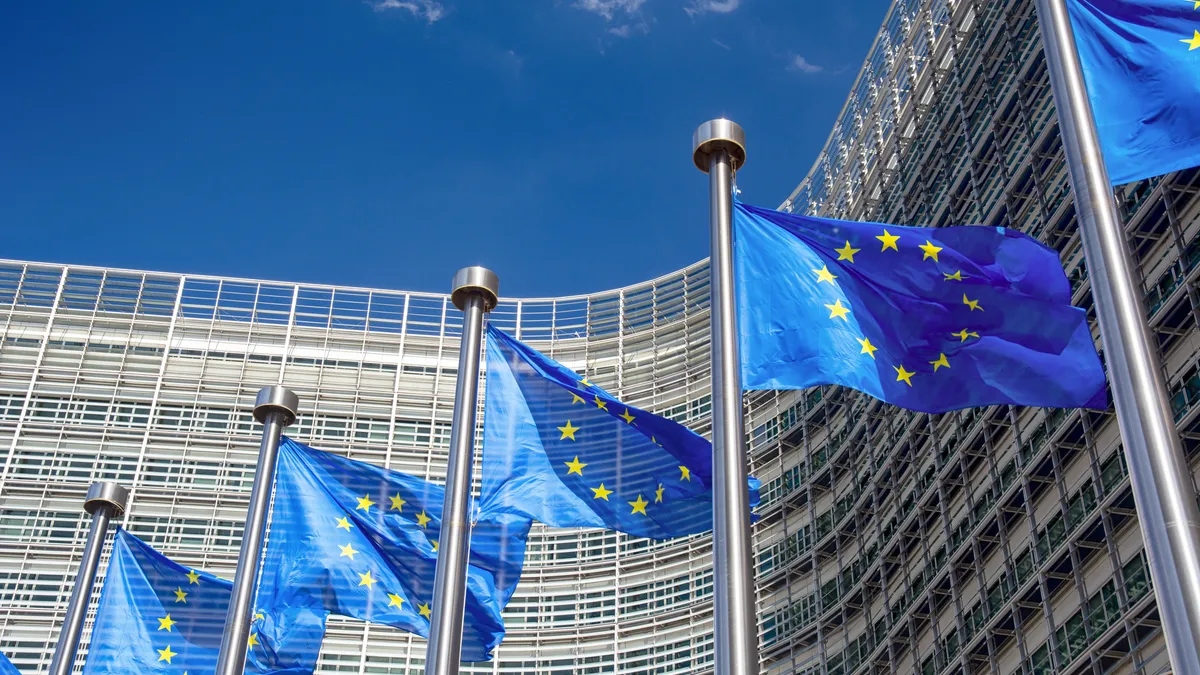Dive Brief:
- The European Commission is garnering early adoption of its AI Act. More than 100 companies voluntarily pledged to apply the law’s principles ahead of the staggered enforcement deadlines, according to an announcement last week.
- IT, healthcare, banking and automotive corporations were among the signatories of the European Union’s AI Pact. Participating companies are committing to implement an AI governance strategy, conduct high-risk AI system mapping and promote AI literacy.
- More than half of the initial signatories have agreed to additional pledges, such as labeling certain types of AI-generated content and ensuring human oversight.
Dive Insight:
The EU AI Act went into force Aug. 1. While some provisions already fully apply, enforcement deadlines are spread out over a two-year transitional period, ending in 2027.
European regulators are working to increase engagement with stakeholders, and ultimately the adoption of its new rules. An open call to gauge interest in the AI Pact gathered responses from more than 550 organizations in November 2023, according to the Commission.
Accenture, Mastercard, Porsche and Booking.com are among the enterprises to pledge early compliance. AI vendors including Google, Microsoft, IBM, OpenAI, Lenovo and SAP are also part of the early adopter pact.
CIOs have kept a watchful eye on evolving AI regulations. Some IT leaders believe more clarity around regulations, better compliance monitoring tools and proactive governance measures would ease enterprise concerns around trust and confidence, according to an ABBYY survey published last month.
Executives are also concerned about how new policies could hurt existing plans.
Leaders worry that compliance could cause delays in adoption and increased costs due to more rigid data privacy requirements. Lagging best practices on data management are partly to blame, but enterprises are working to beef up standards ahead of stricter regulation.
Around half of enterprises are improving the transparency and fairness of AI applications by implementing technical measures, according to a KPMG survey. Others are reviewing and updating data practices.
Sustained efforts around responsible AI practices can give organizations an upper hand when preparing for compliance requirements.
Unilever honed an AI assurance process over several years, involving multiple stakeholders and boosting AI literacy along the way. Chief Privacy Officer Christine Lee said the consumer goods giant has more work to do, but the organization is in a “really good place,” in an interview with CIO Dive.













